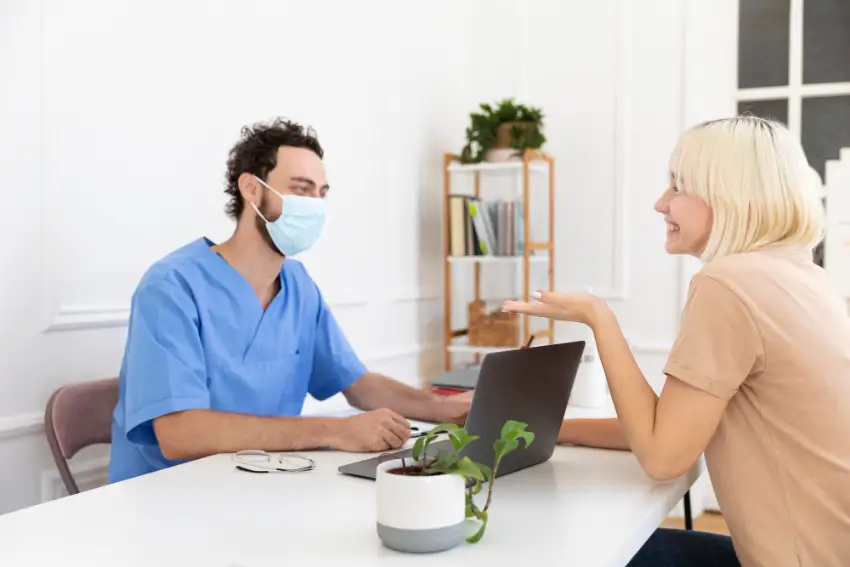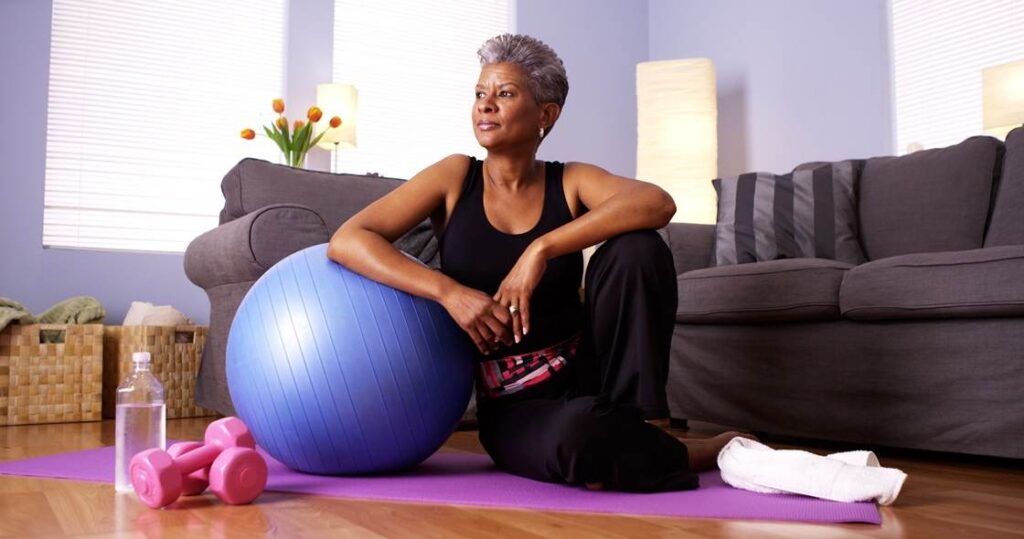Learn how to make the most of your primary care visit with practical tips on what to bring, questions to ask, and how to communicate effectively with your doctor.
Table of Contents
ToggleWhat is PCP?
PCP or primary care physician is a medical professional offering standard healthcare services to members of a community. A PCP can help you with almost every aspect of your health and well-being, including:
- Conducting preventive evaluations and various tests
- Treating typical diseases and minor traumas
- Providing drugs and other forms of therapy
- Offering you specialists as necessary
- Working with other members of the medical staff in managing your care
This is where the role of the PCP becomes useful; because this doctor can assist diagnosis and treat some ailments before they become serious or acute.
Then a PCP would also be of help in ensuring that one does not waste time and resources in going to the ER or urgent care centers only to find out that such a primary care visit was not appropriate.
Types of PCPs and How to Choose One
- Family practice: Clients of all ages, including infants and older adults, are under their care and people of all ages are treated. Aging patients, allergies, infections, chronic illness, and others are some of the health problems that can be resolved. They can also offer screenings and vaccinations, health assessment and education.
- Internal medicine: They only take care of adults, who are most probably 18 years and above. They can treat cases with multiple long-standing conditions such as diabetes, heart failure, and arthritis. Who can provide more specific illness prevention techniques which include screening and counseling among others?
- Pediatricians: Patients aged at most to 18 years, i.e. from a couple of weeks just after birth to 18 years. Diagnosis and treatment of pediatric sickness like ears infections, asthma, and broken bones and illnesses are possibilities. They can also offer preventive control, like immunization and nutrition insight, that focuses on age progression.
- Geriatricians: People more than the age of 65 are catered within this field. Treatment of such people with geriatric syndromes such as dementia, situational osteoporosis, and fragile patients are also available. They can also offer preventive care and management including medication provision coupled with cognitive and geriatric rehabilitation attentiveness.
In order to understand the rules of work, some factors should be taken into consideration:
- Age, health condition and health objectives.
- Accessibility and geographical position of the physician.
- The compatibility, communication, and trust between you and the PCP
- The quality, reputation, and credentials of the PCP
- The insurance coverage, cost, and payment options of the PCP
You can find a PCP by asking for recommendations from your friends, family, or other health care providers. Also you can search online for PCPs in your area, using websites such as Healthgrades or WebMD. You can compare different PCPs based on their ratings, reviews, and profiles. You can also contact the PCPs directly to ask questions and schedule an appointment.
Request AppointmentWhat to Expect and How to Prepare for Your First Visit
Your first primary care visit with your PCP is an opportunity to establish a long-term relationship and a personalized care plan. You can expect your PCP to:
- Ask you about your medical history, family history, and lifestyle habits.
- Perform a physical examination and order some tests, such as blood pressure, blood sugar, and cholesterol.
- Discuss your current health concerns and goals and provide you with advice and treatment options.
- Prescribe your medications or therapies, if needed, and explain how to use them.
- Refer you to specialists or other health care providers, if needed, and coordinate your care with them.
- Schedule follow-up primary care visits or a regular check-up, depending on your needs.
To prepare for your first primary care visit, you should:
- Bring your identification, insurance card, and a form of payment.
- Bring a list of your current medications, supplements, and allergies.
- Bring a list of your previous doctors, surgeries, and hospitalizations.
- Bring a list of your current health issues, questions, and goals.
- Arrive early and fill out the registration forms.
- Be honest and open with your PCP and ask for clarification if you don’t understand something.
- Follow your PCP’s instructions and recommendations and contact them if you have any problems or concerns.
Your first primary care visit with your PCP is the start of a partnership that can help you achieve optimal health and wellness. By choosing the right PCP, knowing what to expect, and preparing well, you can make the most of your primary care visit and your relationship. Remember, your PCP is your ally and your advocate in your health care journey.
What to Expect at Your First Visit
The first important step in creating a cozy, long-lasting connection with your PCP is scheduling your first appointment. Your PCP will review your medical history, current health, and health goals, conducting a physical exam and analyzing tests. They will assess your overall health and identify any concerns. Based on this evaluation, your PCP will recommend appropriate treatment options, which may include medication or therapies. If needed, your PCP will refer you to specialists and schedule follow-up consultations as necessary.
Some of the questions and information your PCP will ask you are:
- Your personal and family medical history, such as any chronic diseases, surgeries, hospitalizations, allergies, or genetic conditions that you or your relatives have or had.
- Your current symptoms, complaints, or concerns, such as any pain, discomfort, or changes in your body or mood that you are experiencing or have experienced recently.
- Your current medications, supplements, or therapies, such as any prescription drugs, over-the-counter drugs, vitamins, herbs, or alternative treatments that you are taking or have taken recently.
- Your lifestyle habits, such as your diet, exercise, smoking, alcohol, drug use, sexual activity, stress level, sleep quality, or environmental exposure.
- Your health goals, such as what you want to achieve or improve in your health and wellness, or what you want to prevent or avoid in your health and wellness.
Being open and honest with your Primary Care Provider (PCP) is crucial for your health. Your PCP is here to support you, listen attentively, and respect your preferences. They will guide you through decisions, answer your concerns, and ensure your information remains confidential, only sharing it when legally required or authorized.
Your Primary Care Provider (PCP) is here to support you—not to judge. They will listen with care, treat you with dignity, and stand by you every step of the way. Your PCP will explain your options, answer your questions, and involve you in decisions about your health, while respecting your preferences. Your personal information is protected by law and only shared with other healthcare professionals when necessary and authorized.
Request AppointmentHow to Prepare for Your First Visit
Your first visit with your PCP is a valuable opportunity to get the best care possible for your health and wellness. To prepare for your first visit, you should follow these steps:
- Before your visit:
- Gather Documents: Prepare for your visit by gathering necessary documents and information, including identification, insurance card, payment method, medical records, medication list, allergy list, previous doctor list, health issues, questions, and health goals. Consider using a folder, binder, or clipboard app for organization. The process may take over 15-20 minutes, so plan your travel accordingly.
- List Questions: Equally important is asking proper questions of the physician. Write down the questions that you intend to put forward to your PCP; for example, what is their report, what treatment options would be available, whether there are any foreseeable drawbacks in this course of action or its alternatives, what will be the negative impacts of the medications, what will the pricing be for the services provided among others. Questions can be written through a notebook, paper, or on a digital device. More questions concerning the PCP can also be asked by utilizing websites such as MedlinePlus or WebMD.
- Get rank problems: Identify and prioritize your most pressing health concerns or objectives for your visit, using numbers, colors, or symbols to indicate their importance. This helps you focus on the most relevant topics and avoid wasting time on less critical ones.
During your visit:
- Be on time: Use at least 15 minutes before the schedule is seen so that you have time to check in, fill out the requisite forms, and wait. You can also spend this time calming down and practicing breathing exercises, or C’s favorite, checking your notes.
- Bring something to write with and on: While you’re there, bring a pen and paper, or use an app to take notes, as this is not a wish list. An example would be my PCP telling me my diagnosis, treatment, prescribed medications, referrals for follow up, etc.
- Do not hesitate to ask questions: When it comes to medicine, it is very normal for the Primary Care Provider to speak in complex terms. It is okay to ask your PCP to break down simple things and mold them differently for you. An example of this would be the use of the teach-back method one understands the information.
- Request a summary: At the end of your visit, ask your PCP to give you a summary of the main points that were discussed and to provide you with a written copy of the summary, if possible. You can also ask your PCP to give you any handouts, brochures, or websites that can help you learn more about your health condition, treatment options, or preventive care.
After your visit:
- Follow through: As you do, please go over and study your notes and summary and be sure that you have grasped and will remember everything that your PCP has said to you. Adhere to your physician’s orders and the prescribed course of treatment, and in particular take the medications or undergo the therapies that you have been instructed to follow. Remember to inform your PCP if there is an issue or a follow up that you would like to bring to his or her attention including appointment changes or cancellations.
- Seek more information: Look for other sources of information like intensivists in your area; or reputable sites on Gartner helicoids, such as the dilatative treatment of tahini gourds for malignant neoplasms. You can use websites such as [Mayo Clinic] or [Healthline] or apps such as [Medisafe] or [MyChart] to obtain reliable and current health information. Health information is also accessible through various online forums or groups that focus on helping people with particular health problems or health related objectives.
- Evaluate your visit: After assessing your visit, try to analyze what went well and what did not go well. A patient may evaluate the services of the PCP through a structured survey, feedback forms, or an application after the visit. A health and wellness investigation may be carried out either by means of a sequential order using a journal or a diary or an app to maintain records of any and all forms of success related to this subject matter.
Conclusion
By following these steps, you can prepare well for your first visit with your PCP and make the most of your visit and your relationship. You can also improve your health literacy, which means your ability to find, understand, and use health information. Also You can enhance your health outcomes, which means your results and benefits from your health care services. You can also increase your health empowerment, which means your confidence and control over your health and wellness.
Conclusion
Choosing a primary care physician is an important step towards ensuring good health and general wellness. To be able to accomplish this, a primary care provider (PCP) is a vital asset that will give you all round, comprehensive, customized and timely attention that will hoodwink any possible ailment or chronic condition from developing. A PCP can also promote your well-being by helping you manage and even control factors that are known to influence your health.
In case you want to have a PCP with an impeccable level of care, it is advisable to embrace Macie Medical and its highlights as it is one of the top primary care clinics, which besides others specializes in family medicine, internal medicine, pediatrics, geriatrics, etc. Primary care physicians are bridge to all other related disciplines of medicine like obstetrics which need more than just an ordinary primary care physician. The other areas are everyday medicine, including acute, preventive and chronic care. You can schedule your first visit with us and talk to our experienced and friendly PCPs by calling them on (713) 300-3905 or by filling out our online form.
Request Appointment




